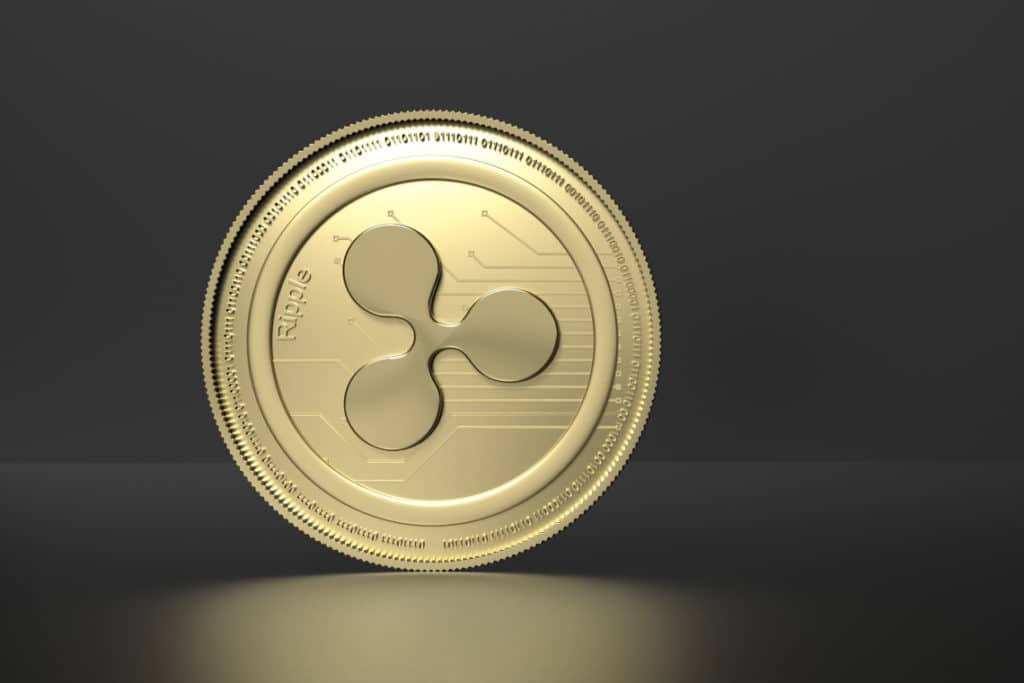Ripple-SEC Settlement Talks: Potential Commodity Designation For XRP

Table of Contents
Understanding the SEC's Case Against Ripple
The SEC's lawsuit against Ripple alleges that the company conducted an unregistered securities offering through the sale of XRP. The core of their argument rests on the assertion that XRP functions as an investment contract, meeting the criteria of the Howey Test. This test, established in SEC v. W.J. Howey Co., defines an investment contract as an investment of money in a common enterprise with a reasonable expectation of profits derived primarily from the efforts of others.
The SEC argues that:
- Unregistered securities offering: Ripple sold XRP without registering it as a security, violating federal securities laws.
- Violation of federal securities laws: The SEC claims Ripple violated the Securities Act of 1933 and the Securities Exchange Act of 1934.
- Lack of proper disclosure to investors: The SEC contends that Ripple failed to provide adequate disclosures to investors regarding the risks associated with XRP.
- The Howey Test and its application to XRP: The SEC believes XRP satisfies all prongs of the Howey Test, making it a security. They emphasize Ripple's involvement in the XRP market and the expectation of profit for early investors.
Ripple's Defense and Arguments for Commodity Classification
Ripple vehemently denies the SEC's allegations, arguing that XRP is a decentralized digital asset functioning as a currency and not a security. Their defense centers on XRP's characteristics and its usage in the broader cryptocurrency ecosystem. Ripple highlights:
- Decentralization of XRP Ledger: They emphasize the decentralized nature of the XRP Ledger, arguing it operates independently of Ripple's control.
- Use cases beyond investment (payments, remittances): Ripple points to XRP's use in cross-border payments and remittances as evidence of its utility beyond investment.
- Comparison to other cryptocurrencies deemed commodities: Ripple draws parallels between XRP and other cryptocurrencies that have been treated as commodities by regulatory bodies.
- Focus on market dynamics and lack of direct control by Ripple: Ripple stresses that they do not control the price or market dynamics of XRP.
Potential Outcomes of a Settlement and Commodity Designation
A settlement resulting in XRP being classified as a commodity could have significant ramifications.
- Regulatory clarity for XRP and the crypto market: This would provide much-needed clarity for the crypto industry regarding the regulatory treatment of digital assets.
- Increased investor confidence and potential price surge: A positive legal outcome could significantly boost investor confidence, potentially leading to a surge in XRP's price and market capitalization.
- Precedents for future SEC cryptocurrency classifications: The decision would set a precedent for how the SEC classifies other cryptocurrencies in the future.
- Potential impact on other crypto projects facing similar legal challenges: The outcome could influence the legal strategies and outcomes for other cryptocurrency projects facing similar regulatory scrutiny.
Regulatory Implications for the Broader Crypto Market
The Ripple-SEC case outcome will have a significant ripple effect (pun intended!) on the broader cryptocurrency market. A commodity designation for XRP could:
- Increased scrutiny of other crypto projects: Other crypto projects might face increased regulatory scrutiny as the SEC seeks to apply similar legal frameworks.
- Potential for clearer regulatory guidelines: A successful defense could push for the development of clearer, more specific regulatory guidelines for cryptocurrencies.
- Impact on decentralized finance (DeFi) protocols: The ruling may impact DeFi protocols that utilize XRP or similar cryptocurrencies.
- International regulatory harmonization challenges: The decision will likely present challenges for international regulatory harmonization in the cryptocurrency space.
Conclusion
The Ripple-SEC settlement talks represent a pivotal moment for the cryptocurrency industry. A potential commodity designation for XRP could bring much-needed regulatory clarity, influencing not only XRP's future but also the landscape for other digital assets. While the outcome remains uncertain, understanding the arguments and potential implications is crucial for anyone invested in or interested in the future of cryptocurrencies. Stay informed on the latest developments in the Ripple-SEC case to navigate the evolving regulatory environment surrounding XRP and other cryptocurrencies. Learn more about the ongoing Ripple-SEC Settlement and the potential for XRP Commodity Designation by continuing your research.

Featured Posts
-
 Ghanas Mental Health Crisis A Stark Reality Of 80 Psychiatrists For 30 Million
May 02, 2025
Ghanas Mental Health Crisis A Stark Reality Of 80 Psychiatrists For 30 Million
May 02, 2025 -
 Tongas U 19 Womens Football Team Secures 2025 Ofc Championship Spot
May 02, 2025
Tongas U 19 Womens Football Team Secures 2025 Ofc Championship Spot
May 02, 2025 -
 Ex Wallaby Phipps Australian Rugbys Global Struggle
May 02, 2025
Ex Wallaby Phipps Australian Rugbys Global Struggle
May 02, 2025 -
 Fortnite Update 34 21 Server Downtime And Whats New
May 02, 2025
Fortnite Update 34 21 Server Downtime And Whats New
May 02, 2025 -
 Project Muse Fostering Shared Experiences In Academic Research
May 02, 2025
Project Muse Fostering Shared Experiences In Academic Research
May 02, 2025
Latest Posts
-
 Harry Potter Shop Chicago Now Open What To Expect
May 03, 2025
Harry Potter Shop Chicago Now Open What To Expect
May 03, 2025 -
 Lionesses Match Details Tv Channel Kick Off Time And Streaming For Belgium Vs England
May 03, 2025
Lionesses Match Details Tv Channel Kick Off Time And Streaming For Belgium Vs England
May 03, 2025 -
 Poppy Atkinson Remembered Funeral For Beloved Manchester United Fan
May 03, 2025
Poppy Atkinson Remembered Funeral For Beloved Manchester United Fan
May 03, 2025 -
 How To Watch Belgium Womens Football Tv Channel For Belgium Vs England
May 03, 2025
How To Watch Belgium Womens Football Tv Channel For Belgium Vs England
May 03, 2025 -
 Community Mourns Poppy Atkinson Funeral Held After Car Accident
May 03, 2025
Community Mourns Poppy Atkinson Funeral Held After Car Accident
May 03, 2025
